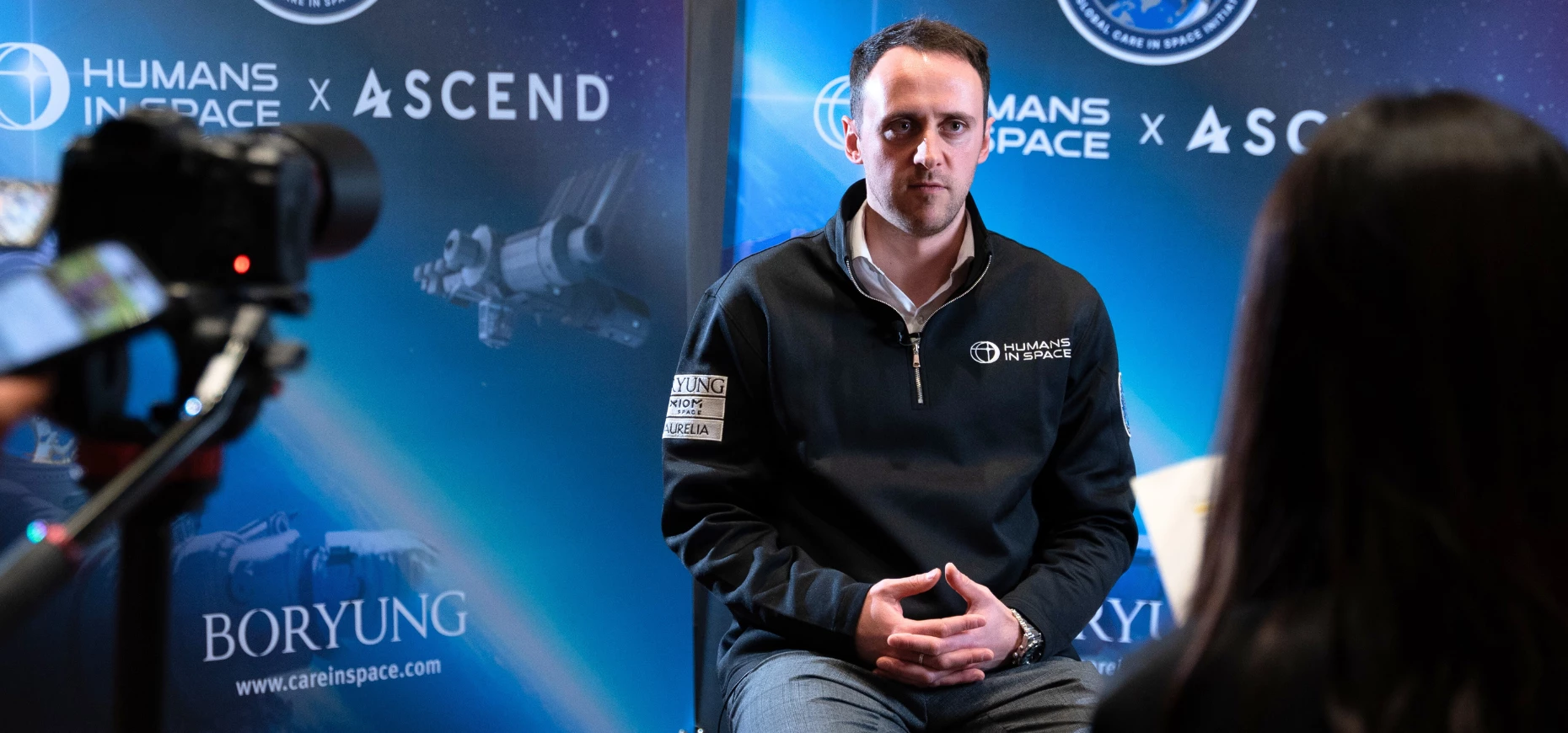
Northumbria University secures new funding to ‘safeguard the health of astronauts’
Space health experts at Northumbria University have won a global competition that will enable them to explore blood flow restriction training among astronauts during spaceflight.
Professor Nick Caplan and Dr Luke Hughes, from Northumbria’s Aerospace Medicine and Rehabilitation Laboratory, have won the 2023 Humans in Space Challenge, run by South Korean health technology company, Boryung, in partnership with Axiom Space and Aurelia.
Funding from the competition will allow Professor Caplan and Dr Hughes to develop a space-ready version of the Delfi Personalised Tourniquet System for Blood Flow Restriction, which is used to perform Blood Flow Restriction Exercise (BFRE).
It involves applying a surgical-grade tourniquet cuff to an individual’s limb and inflating it to compress the limb and reduce blood flow and oxygen supply to muscle and bone tissue during exercise. BFRE has been shown to mitigate loss of muscle and bone mineral in individuals following surgery and during limb immobilisation here on Earth.
NASA, the European Space Agency (ESA) and private space exploration companies have identified BFRE as a potential countermeasure to improve astronaut health during spaceflight, particularly in exploration missions beyond low Earth orbit to the Moon during which limited time and equipment will be available for exercise.
However, currently no BFRE device exists that can be qualified and approved for crewed spaceflight research. Northumbria’s research project aims to develop a proof-of-concept design for an innovative Personalised Tourniquet System for spaceflight that can be qualified and approved for future spaceflight missions.
Professor Caplan and Dr Hughes will work with Western Clinical Engineering, in Canada, as the owners and manufacturers of the commercially available device, and Kayser Space, who specialise in developing and qualifying hardware for scientific research in space, to develop this space-ready version of the Delfi Personalised Tourniquet System.
Professor Caplan commented: “We are already investigating the Delfi Personalised Tourniquet System in simulated reduced gravity in our lab. Having the funding to now develop this hardware for actual spaceflight will open up many possibilities for further research in space.”
Astronauts suffer loss of muscle and bone mineral in space due to the absence of gravity and these deficits can persist long after return to Earth.
Dr Hughes added: “Our research will develop an innovative exercise device that meets the constraints of future missions and enables BFRE to be performed during spaceflight, with the goal of mitigating loss of muscle and bone in astronauts.”
By Matthew Neville – Senior Correspondent, Bdaily
- Add me on LinkedIn and Twitter to keep up to date
- And follow Bdaily on Facebook, Twitter and LinkedIn
- Submit press releases to editor@bdaily.co.uk for consideration.
Looking to promote your product/service to SME businesses in your region? Find out how Bdaily can help →
Enjoy the read? Get Bdaily delivered.
Sign up to receive our daily bulletin, sent to your inbox, for free.








 Ready to scale? Buy-and-build offers opportunity
Ready to scale? Buy-and-build offers opportunity
 When will our regional economy grow?
When will our regional economy grow?
 Creating a thriving North East construction sector
Creating a thriving North East construction sector
 Why investors are still backing the North East
Why investors are still backing the North East
 Time to stop risking Britain’s family businesses
Time to stop risking Britain’s family businesses
 A year of growth, collaboration and impact
A year of growth, collaboration and impact
 2000 reasons for North East business positivity
2000 reasons for North East business positivity
 How to make your growth strategy deliver in 2026
How to make your growth strategy deliver in 2026
 Powering a new wave of regional screen indies
Powering a new wave of regional screen indies
 A new year and a new outlook for property scene
A new year and a new outlook for property scene
 Zero per cent - but maximum brand exposure
Zero per cent - but maximum brand exposure
 We don’t talk about money stress enough
We don’t talk about money stress enough